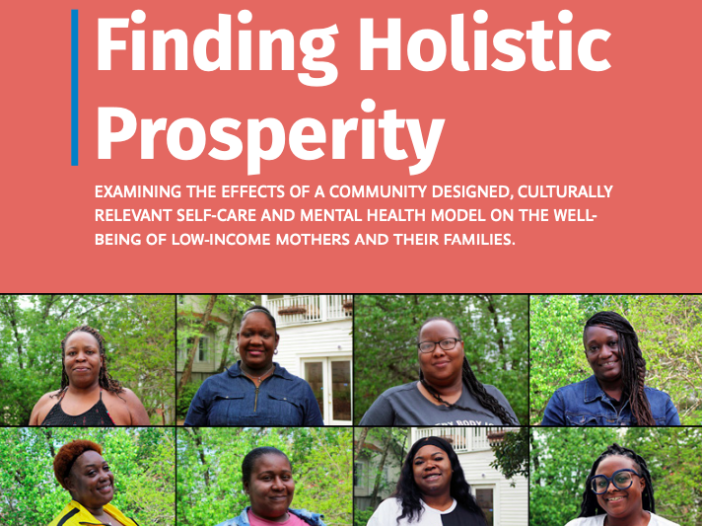
As a part of our radically resident-driven philosophy, we are always trying to listen to the voices of our residents and adjust accordingly as unexpected circumstances and changes become apparent in their lives. This was especially key in the spring of 2020 as the COVID-19 pandemic first descended on the country.
While we’ve talked a lot about our economic security responses during that time, the pandemic brought additional trauma into communities that were already experiencing the trauma of poverty and long-standing consequences of systemic racism in the United States. As residents worried about the health and safety of their families, experienced less time for themselves and their own needs, and became increasingly isolated from friends, family, and other relationships, residents expressed a need for mental health support and a trusted community to lean on in the midst of crisis, even if they were already receiving cash benefits.
When we talk about prosperity, we often link it simply to economic security. But we started wondering what would happen if we expanded our definition to recognize the importance of mental health and wellness in helping families thrive.
What if having trusted community and support during a crisis mattered just as much as cash? What would it look like for families to experience holistic prosperity beyond just financial prosperity?
These were some of the questions that we set out to answer as a part of Ascend at the Aspen Institute’s Family Prosperity Innovation Community. We worked alongside mental health experts and residents to co-create a self-care toolkit and program intended to support growth, healing, and leadership amongst participants we came to call the MISS Program. As a part of this program, participants reported on metrics comparable to those used in the evaluation of The Magnolia Mother’s Trust to help us better understand if there were ways self-care and mental health supports could support families in ways that cash does not.
And today, we are proud to share with you our final report summarizing the findings from this initiative. Highlights include decreases in difficulty with mood and mental health, less reported days feeling worried or anxious, improved physical health, and more healthy coping mechanisms. The full report is available below. We hope you find time to read it through. Beyond the initial statistics are quotes and stories from families finding hope and community, comparisons to our guaranteed income evaluation findings, and recommendations for cash policies and guaranteed income pilots.
Our mission has always been to help families reach their goals in all aspects of their lives. And with programs like MISS, families can take one more step toward holistic prosperity.
